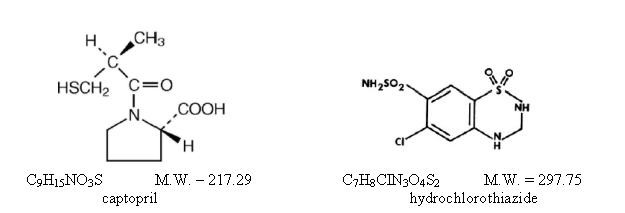
Captopril And Hydrochlorothiazide Tablet while Breastfeeding
What is Captopril And Hydrochlorothiazide Tablet used for?
What are the risk associated with Captopril And Hydrochlorothiazide Tablet usage while breastfeeding? What precautions shall I take while using it in breastfeeding?

Nursing Mothers Both captopril and hydrochlorothiazide are excreted in human milk. Because of the potential for serious adverse reactions in nursing infants from both drugs, a decision should be made whether to discontinue nursing or to discontinue therapy taking into account the importance of Captopril and Hydrochlorothiazide to the mother. (See PRECAUTIONS: Pediatric Use.)
Captopril And Hydrochlorothiazide Tablet Breastfeeding Analsys
Captopril while Breastfeeding
SafeCAS Number: 62571-86-2
Excreted into breast milk in non-significant amount without harm effects observed among breastfed infants of mothers treated with Captopril. The American Academy of Pediatrics rates it as usually compatible with Breastfeeding.
Hydrochlorothiazide while Breastfeeding
SafeCAS Number: 58-93-5
Thiazide diuretic drug. Excretion into breast milk is clinically non-significant. No side-effects were observed in a one-month old breastfed baby whose mother was treated with this medication. Drug level in the plasma of this child was undetectable. Long-term treatment with diuretic drugs (particularly Thiazide type ones with long-lasting effect and loop-acting mechanism) may inhibit lactation, mostly if lactation is not well-established yet. Use as lower dose as possible, especially during the first postnatal month. American Academy of Pediatrics 2013: Maternal Medication Usually Compatible With Breastfeeding. WHO Model List of Essential Drugs 2002: Compatible with breastfeeding.
Captopril And Hydrochlorothiazide Tablet Breastfeeding Analsys - 2
Captopril while Breastfeeding
CAS Number: 62571-86-2
Because of the low levels of captopril in breastmilk, amounts ingested by the infant are small and would not be expected to cause any adverse effects in breastfed infants.
Hydrochlorothiazide while Breastfeeding
CAS Number: 58-93-5
Hydrochlorothiazide doses of 50 mg daily or less are acceptable during lactation. Intense diuresis with large doses may decrease breastmilk production.

What should I do if already breastfed my kid after using Captopril And Hydrochlorothiazide Tablet?
It is always a good idea to keep your healthcare provider or doctor informed about your drug usage during pregnancy and breastfeeding but if you have not informed your doctor about Captopril And Hydrochlorothiazide Tablet and have used it then do not panic as Captopril And Hydrochlorothiazide Tablet is mostly safe in breastfeeding and should not cause any harm to your baby.
I am nursing mother and my doctor has suggested me to use Captopril And Hydrochlorothiazide Tablet, is it safe?
Usage of Captopril And Hydrochlorothiazide Tablet is safe for nursing mothers and baby, No worries.
If I am using Captopril And Hydrochlorothiazide Tablet, will my baby need extra monitoring?
No
Who can I talk to if I have questions about usage of Captopril And Hydrochlorothiazide Tablet in breastfeeding?
US
National Womens Health and Breastfeeding Helpline: 800-994-9662 (TDD 888-220-5446) 9 a.m. and 6 p.m. ET, Monday through Friday
UK
National Breastfeeding Helpline: 0300-100-0212 9.30am to 9.30pm, daily
Association of Breastfeeding Mothers: 0300-330-5453
La Leche League: 0345-120-2918
The Breastfeeding Network supporter line in Bengali and Sylheti: 0300-456-2421
National Childbirth Trust (NCT): 0300-330-0700
Australia
National Breastfeeding Helpline: 1800-686-268 24 hours a day, 7 days a week
Canada
Telehealth Ontario for breastfeeding: 1-866-797-0000 24 hours a day, 7 days a week
